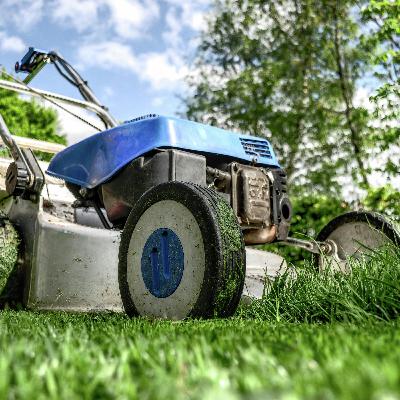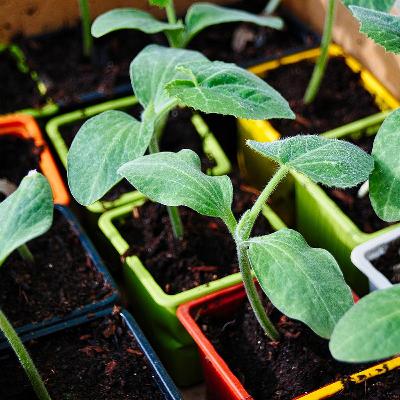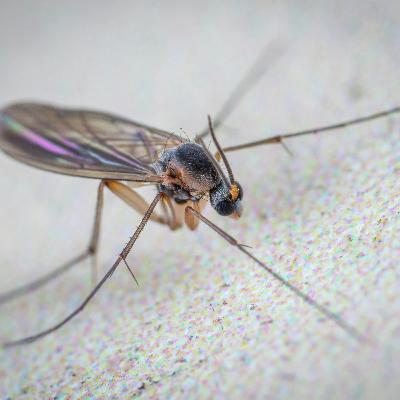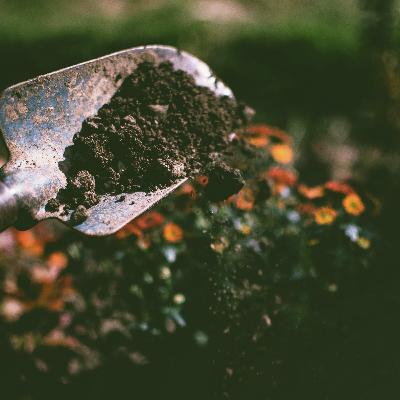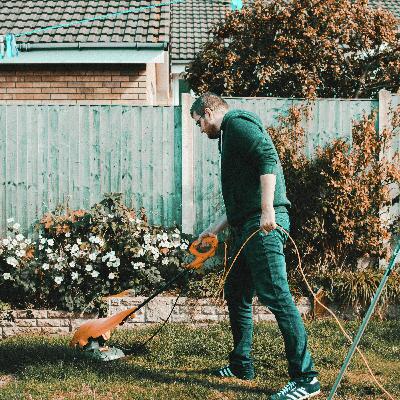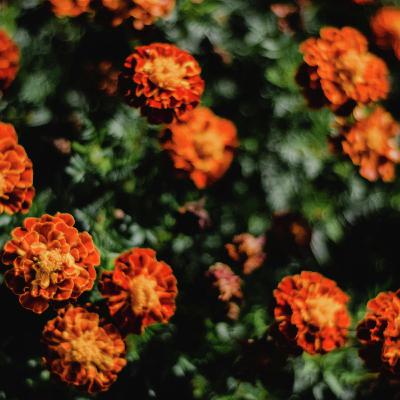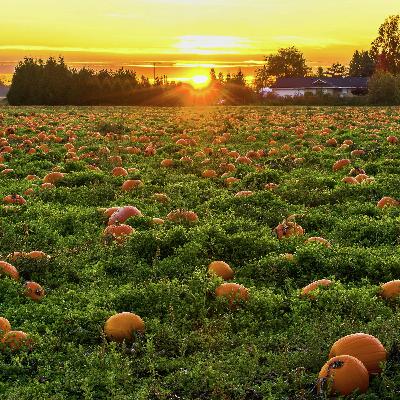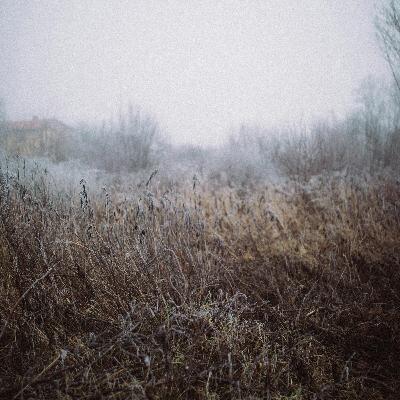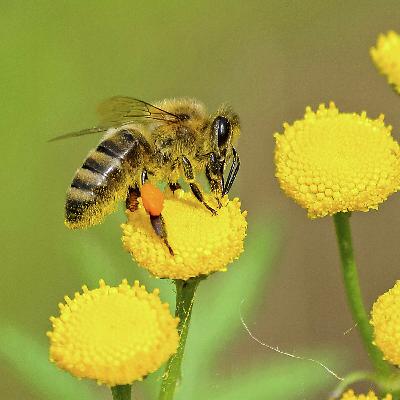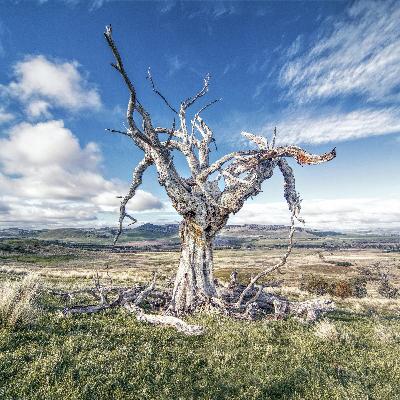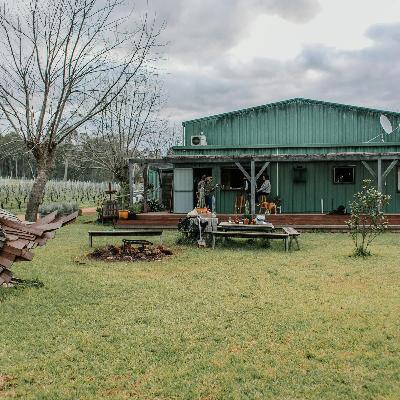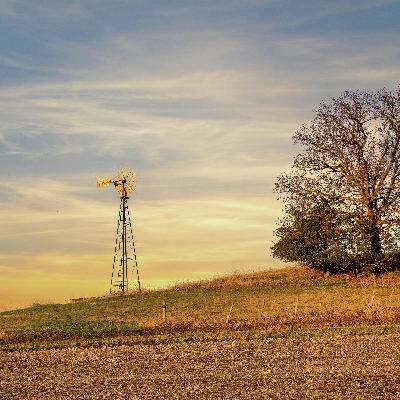Discover Plant Doctor with Mike Meier
Plant Doctor with Mike Meier

84 Episodes
Reverse
In this episode of Plant Doctor with Mike Meier, Mike dives into the controversial topic of "No Mow May" and why he believes it's not beneficial for your lawn or the environment. He addresses the myths surrounding pollinators and the necessity of honeybees for plant growth, providing a fresh perspective on lawn care and maintenance during the spring season. Key Topics & Caller Questions: No Mow May Debate: Mike critiques the "No Mow May" initiative, arguing that allowing grass to grow unchecked can harm your lawn and attract unwanted pests. Grass Clippings and Raspberries: A caller asks if it's safe to use grass clippings as mulch around raspberry plants, and Mike explains the potential issues with moisture and mold. Squirrel Deterrents: Mike offers creative solutions for keeping squirrels out of gardens, including the use of cayenne pepper and bird netting. Garden Tilling Techniques: A listener inquires about the necessity of extensive tilling, and Mike shares insights on effective soil preparation without overdoing it. Understanding Pollination: Mike debunks common myths about honeybees and emphasizes that many plants can thrive without them, drawing on historical examples. This episode is filled with practical advice, lively discussions, and a dose of humor, making it a must-listen for anyone looking to enhance their gardening knowledge this spring. Tune in for expert tips that will help you cultivate a healthy and vibrant lawn!See omnystudio.com/listener for privacy information.
In this episode of Plant Doctor with Mike Meier, Mike tackles the exciting world of spring gardening and shares his top tips for planning your garden effectively. He emphasizes the importance of creating a garden map to avoid overspending on plants and offers practical advice on how to propagate dogwood bushes and what to do about pesky spruce trees affected by disease. Key Topics & Caller Questions: Creating a Garden Map: Mike discusses how to sketch out your garden layout to ensure you buy the right amount of plants and avoid overcrowding. Dogwood Propagation: A caller asks about propagating dogwood bushes, and Mike provides step-by-step instructions for successful cuttings. Replacing Spruce Trees: Mike advises on suitable replacements for spruce trees affected by disease, suggesting white pine as a resilient option. Spring Raking Tips: A listener inquires about the best time to rake their lawn, and Mike shares his insights on soil moisture and timing. Managing Moles: Mike gives practical advice on dealing with moles in your yard, including effective baiting techniques. Grass Growth Around Trees: A caller seeks advice on growing grass around a honey locust tree, and Mike discusses aeration and watering strategies. This episode is packed with valuable information for gardeners looking to kick off the season right, featuring practical tips and expert insights that will help you cultivate a thriving garden. Don't miss out on Mike's lively discussion and expert advice!See omnystudio.com/listener for privacy information.
Spring is here—and so are the bugs! In this episode, Mike dives into practical tips for keeping mosquitoes, gnats, and ticks at bay, so you can actually enjoy your yard without the bites. Learn the do’s and don’ts of bug zappers, why DEET isn’t as scary as it sounds, and how an unexpected drugstore body spray (hint: vanilla!) can be your secret weapon. Plus, Mike answers listener questions about: Saving winter-damaged boxwoods 🌿 Battling invasive zoysia grass 🌱 The right time to rake and clean up your lawn 🍂 And if you’re out near Lake Onalaska—don’t miss the pelican migration!See omnystudio.com/listener for privacy information.
In this episode of Plant Doctor with Mike Meier, Mike dives deep into the world of lawn care as spring begins to awaken the gardens and yards. He addresses the aftermath of recent storms, discussing how they impact tree health and the importance of timely lawn maintenance. With a wealth of listener questions pouring in, Mike focuses on how to choose the right lawn care company and what to look out for when hiring professionals. Key Topics & Caller Questions: Choosing a Lawn Care Company: Mike shares insights from his experience managing a lawn care company, emphasizing the need to avoid fly-by-night operations and how to spot reputable businesses. Pruning Trees: A caller inquires about the best time to prune their maple tree. Mike explains the ideal timing and techniques to ensure healthy growth while minimizing damage. Emerald Ash Borer Concerns: Another caller raises concerns about their ash trees. Mike discusses the signs of infestation and the importance of proper treatment to protect these valuable trees. Moss and Crabgrass Management: A listener asks about dealing with moss in their lawn. Mike advises on effective raking techniques and the timing for applying lime and crabgrass preventer. Fertilization Tips: Mike highlights the best times to fertilize your lawn and the types of products to use, stressing the importance of understanding soil temperature and crabgrass emergence. This episode is packed with practical advice, expert tips, and a touch of humor, making it a must-listen for anyone looking to enhance their lawn care skills this spring. Tune in for a lively discussion that will help you get your garden and lawn in top shape!See omnystudio.com/listener for privacy information.
In this episode, Mike Meyer takes calls and answers listener questions about all things green and growing. With spring on everyone’s mind, he focuses on starting seeds indoors and offers expert advice on transplanting bushes, controlling tree stumps, and dealing with invasive roots. Caller Questions & Topics Covered: Transplanting a Bush: A caller struggles with a bush being overtaken by maple roots. Mike explains the best timing and methods for transplanting. Sweetgrass for Weaving: A listener inquires about where to find sweetgrass. Mike suggests alternatives like pampas grass and shares insights on controlling its aggressive growth. Tree Stump Removal: A caller seeks a cost-effective way to eliminate stumps without professional grinding. Mike discusses using glyphosate-based products and other DIY solutions. Weeping Willow Propagation: Mike explains the best way to root a willow branch, emphasizing small cuttings and proper water treatment. Crabgrass Prevention: A listener asks about the right time for applying crabgrass preventer. Mike warns against applying too early and provides guidance on soil temperature monitoring. He also touches on the challenges of Phytophthora in tomatoes, a fungal disease affecting many gardens, and briefly previews upcoming topics on fertilization and lawn care.See omnystudio.com/listener for privacy information.
In this episode of Plant Doctor with Mike Meier, Mike welcomes the arrival of spring, sharing his excitement and the challenges that come with the season. He discusses the importance of preparing for gardening, addressing common concerns such as wind damage to trees and houseplants that need a little TLC. With just a few days left until spring, Mike reflects on the unpredictable weather, including the recent rain that left the ground yearning for more moisture. The conversation shifts to practical gardening advice, as Mike tackles questions from listeners, including the right time to trim arborvitae hedges and how to manage algae in a large farm pond. He emphasizes the use of algaecides and suggests consulting local co-ops for proper application techniques. As the episode unfolds, Mike dives into a critical topic for tomato growers: Phytophthora, a disease that has wreaked havoc on tomato crops for years. He explains the disease's history, its conditions for spread, and the importance of using resistant varieties. Mike provides valuable tips on how to protect tomato plants, such as growing them in pots and keeping them off the ground to prevent soil-borne spores from causing damage. Listeners are also treated to a heartwarming discussion about gardening with children. Mike shares his own experiences and encourages parents to involve their kids in gardening, highlighting the valuable lessons it teaches, including patience and responsibility. He offers practical advice on keeping tasks simple and engaging to maintain children's interest in the garden. This episode is filled with Mike's trademark humor and expertise, making it a must-listen for anyone looking to enhance their gardening skills or seeking to share the joys of gardening with the next generation. Tune in for expert advice, lively discussions, and a touch of nostalgia as Mike celebrates the beauty of spring and the joys of gardening.See omnystudio.com/listener for privacy information.
In this episode of Plant Doctor with Mike Meier, Mike delves into the intriguing world of plant folklore and old wives' tales, providing listeners with a blend of humor and insightful gardening advice. He kicks off the conversation by exploring the age-old practice of talking to plants, revealing that while plants may not hear us in the traditional sense, sound waves can actually help stimulate root growth when amplified through the pot and soil. Listeners are treated to a fascinating discussion about the lore surrounding foxglove, a plant steeped in superstition, believed to attract fairies and associated with both beauty and danger. Mike explains the origins of its name and warns against the plant's toxic properties, offering a cautionary tale about its medicinal uses. The episode also covers the mystical phenomenon of fairy rings, which Mike describes as a natural occurrence of fungi that can create dark green circles in lawns, often leading to folklore about magical beings. He shares his passion for fungi and the peculiarities of slime molds, tying in how these fascinating organisms inspire tales of the supernatural. As the episode unfolds, Mike addresses various old wives' tales, including the idea that sitting on the soil can indicate when it's warm enough to plant and the myth that moss only grows on the north side of trees. He debunks these myths with a dose of practical gardening wisdom, reminding listeners that understanding plant behavior and environmental conditions is key to successful gardening. Whether you're curious about plant superstitions, looking for practical gardening tips, or simply enjoy a good story about the natural world, this episode is packed with Mike's engaging insights and expert advice. Join the conversation and get your gardening questions answered with a mix of laughter and knowledge.See omnystudio.com/listener for privacy information.
In this lively episode of Plant Doctor with Mike Meier, Mike tackles the seasonal challenges of fall gardening, starting with a common Halloween dilemma: reviving sagging jack-o'-lanterns. Mike shares his expert advice on how to rehydrate and preserve your pumpkin carvings, offering practical tips like soaking them in cold water and using petroleum jelly to lock in moisture. He also suggests a clever trick to deter pesky squirrels from making a meal of your pumpkins using cayenne pepper or Tabasco sauce. The episode also features engaging listener interactions, with callers seeking solutions for garden pests and plant care. Jane calls in with concerns about boxelder bugs, and Mike recommends Ortho's Home Defense as an effective treatment. He provides detailed instructions on application to ensure these unwelcome guests don't invade your home. Another caller, Kevin from Alaska, inquires about overwintering rosemary and oregano, and Mike explains the use of anti-desiccant sprays and the need to bring oregano indoors for the winter. Mike delves into the history of Asian beetles in the U.S., explaining their introduction as a biological control measure and the subsequent unintended consequences. He also offers guidance on managing creeping Charlie and fertilizing white spruce seedlings, emphasizing the importance of timing and correct application rates. As the episode progresses, Mike answers questions about transplanting hostas and caring for wildflowers, providing listeners with seasonal gardening advice tailored to their specific needs. He wraps up with some inventive pumpkin carving tips, ensuring that listeners' Halloween decorations remain vibrant and intact. Whether you're dealing with fall pests, preparing your garden for winter, or seeking creative pumpkin carving techniques, this episode is packed with Mike's practical advice and signature humor. Join the conversation and get your gardening questions answered with a touch of wit and a wealth of knowledge. See omnystudio.com/listener for privacy information.
In this episode of Plant Doctor with Mike Meier, Mike navigates the intricacies of fall gardening, sharing essential tips for transitioning plants indoors and preparing your lawn for the colder months. He emphasizes the importance of bringing outdoor plants inside gradually and offers detailed advice on using insecticidal soap to keep pests at bay. Listeners are treated to a lively discussion on lawn care, where Mike advises a caller on eliminating bentgrass and yellow nut sedge using glyphosate and specialized herbicides. He explains the benefits of overseeding during fall aeration and the importance of mowing height adjustments throughout the seasons to maintain a healthy lawn. Mike also delves into the care of raspberry plants and rose bushes, recommending mulching and anti-desiccant sprays to protect them through winter. He provides guidance on the optimal timing for transplanting perennials, highlighting the advantages of fall transplants for robust root development. For those curious about bulb planting, Mike demystifies the process, encouraging gardeners to plant spring-flowering bulbs like daffodils and crocuses as the ground cools. He reassures listeners that bulb orientation is less critical than often believed, as nature finds a way to ensure growth. Throughout the episode, Mike offers practical advice with his trademark humor and expertise, ensuring that both novice and seasoned gardeners can prepare their gardens for the upcoming winter with confidence.See omnystudio.com/listener for privacy information.
In this episode of Plant Doctor with Mike Meier, Mike delves into the nuances of fall lawn care, offering expert advice on mowing, fertilizing, and preparing your garden for the colder months. He emphasizes the importance of adjusting your lawn mower to the appropriate height for fall and discusses the benefits of dormant fertilization, explaining how it helps plants build strong root systems to withstand winter stressors. Mike also addresses listener questions, providing guidance on lawn aeration and the use of pesticides, particularly for ant control. He highlights the ecological benefits of ants and suggests using Seven for spot treatment if necessary. The conversation takes a detour into the world of pesticides, where Mike discusses the controversies surrounding certain chemicals and their perceived dangers. Listeners are treated to practical tips on transplanting small trees like plum trees and rhubarb, with Mike advising on planting depths and the importance of avoiding nitrogen fertilizers during this period. He also covers the intriguing phenomenon of lilac bushes blooming out of season and the common fungal issues affecting crabapple trees, offering solutions to manage these challenges effectively. Whether you're wondering about the best time to fertilize your lawn, how to manage unexpected plant growth, or the intricacies of tree transplantation, this episode is packed with valuable insights and Mike's signature expertise. Join the conversation and get your gardening questions answered with a dash of humor and a wealth of knowledge.See omnystudio.com/listener for privacy information.
In this episode of Plant Doctor with Mike Meier, Mike dives into the often-overcomplicated world of planting spring flowering bulbs. He dismantles the myths surrounding bulb planting, emphasizing that it's not rocket science and can be quite forgiving. Mike provides practical advice on how deep to plant bulbs, the correct orientation, and the best time to plant them to avoid premature growth. Mike also shares tips on caring for bulbs after they bloom, including the importance of allowing leaves to die back naturally to recharge the bulb's energy for the next season. He discusses the best practices for storing bulbs that need to be taken in for the winter, such as using peat moss in a cardboard container and occasional misting to prevent rot. Listeners get insights into creative ways to plant bulbs for aesthetic appeal, like scattering them randomly for a natural look or using them as accent pieces around mailboxes and lamp posts. Mike also covers the special care needed for planting perennials and shrubs bought at reduced prices from chain stores at the end of the season, including soil amendment and proper planting depth. In the second half of the show, Mike addresses listener questions about various plant issues. Bill calls in about young American chestnut trees and receives advice on managing sucker growth and the challenges posed by chestnut blight. Another caller seeks guidance on controlling the growth of grapevines and the best time for pruning to avoid disease. Mike wraps up with a discussion on fall planting, highlighting the popularity of mums and the importance of selecting the right ones to ensure they bloom at home. He also introduces listeners to the lesser-known but highly rewarding flowering kale, which can add vibrant color to your garden even through winter frosts. Whether you're a novice gardener or a seasoned pro, this episode is packed with Mike's expert advice, practical tips, and a touch of humor to help you navigate the world of fall planting and bulb care.See omnystudio.com/listener for privacy information.
In this episode of Plant Doctor with Mike Meier, Mike dives into a variety of topics, from the best practices for growing chives to the folklore of weather prediction. The episode kicks off with a call from Don, who asks about managing the blooms on his chives. Mike explains the benefits of letting them flower and how it doesn't harm the plant, providing useful tips for both regular and garlic chives. Mike then shares his personal experiences with the changing weather in Wisconsin and his favorite season, autumn. He talks about the joys of cooler weather, the beauty of fall foliage, and the reduction of pesky bugs after the first frost. He also poses a question to listeners about the unusually high spider population he's noticed this year, speculating on the potential link to the declining bat population. Listener Kevin texts in to ask about planting apple trees, and Mike provides detailed advice on the type of soil to use and the importance of staking young trees. He also discusses the benefits of using dormant oil spray to protect against fungal diseases. Rob calls in with a common issue: his morning glories are growing well but not blooming. Mike identifies the problem as over-fertilization and advises against using fertilizers for morning glories, which thrive in poor soil. He offers similar advice for rhubarb, emphasizing the need to avoid phosphorus-rich fertilizers to prevent unwanted flowering. Mike delves into the folklore of weather prediction, sharing various old wives' tales and scientific studies about the woolly bear caterpillar's ability to predict winter severity. He also discusses other signs from nature, like the behavior of squirrels and the thickness of onions' skins, as indicators of upcoming weather conditions. Listeners are encouraged to share their own weather-related folklore and to call in with any plant-related questions. Mike wraps up the episode by discussing weather phobias, adding a humorous touch to the show. Whether you're curious about plant care, fascinated by weather folklore, or just looking for practical gardening advice, this episode is packed with Mike's signature blend of expertise and humor.See omnystudio.com/listener for privacy information.
In this episode of Plant Doctor with Mike Meier, Mike delves into the perennial debate on organic versus synthetic pesticides. He begins by sharing his disdain for the summer heat and reminisces about his younger days when he enjoyed warmer climates. Mike emphasizes his realistic approach to gardening and his disdain for misleading information, particularly in the media. Mike tackles common misconceptions about organic gardening methods, highlighting the ineffectiveness of some popular organic remedies like using chewing gum to get rid of moles. He explains that not all organic substances are safe, listing harmful organic compounds such as arsenic, cyanide, and even gasoline. Mike stresses the importance of using effective solutions, whether they are organic or synthetic, to ensure plant health and safety. Throughout the episode, Mike takes calls from listeners with various plant-related questions. Phil seeks advice on stopping a tree stump from regrowing, and Mike provides a detailed method involving glyphosate or Tordon. Kelly inquires about propagating hardy hibiscus, and Mike offers step-by-step instructions for rooting cuttings in water. Another caller, Betty, describes unusual bugs on her coneflowers, and Mike suggests they might be weevils and reassures her about her pest control methods. Mike also addresses the issue of rust mold in lawns, explaining that it is a common problem during this time of year and can be managed by proper fertilization and watering. He shares a humorous anecdote about kids coming home with orange-stained clothes due to rust mold spores. Whether you're curious about the efficacy of organic methods, dealing with persistent plant issues, or seeking practical gardening advice, this episode is packed with Mike's signature blend of humor, realism, and expert knowledge.See omnystudio.com/listener for privacy information.
In this episode of Plant Doctor with Mike Meier, Mike dives into a variety of listener questions and offers practical advice on lawn care, pest control, and plant health. The episode kicks off with a call from Mary, who is curious about the best time to aerate her lawn. Mike explains the importance of soil moisture and suggests fall as the optimal time for periodic maintenance aeration. Mary also asks about weed control, and Mike recommends using Four Speed XT for broadleaf and grassy weeds, providing detailed instructions on its application. Next, Jim Dandy calls in with a mole problem exacerbated by his dogs digging up the yard. Jim shares a home remedy involving castor oil and dish soap, but Mike debunks its effectiveness and suggests using pinwheels to deter moles. He shares his own surprising success with pinwheels, despite his initial skepticism, and emphasizes the importance of non-chemical solutions. Kevin texts in about his pumpkin plants, which flourish but produce few pumpkins. Mike identifies potential issues such as insufficient sunlight and acidic soil due to proximity to a spruce tree. He advises moving the plants and testing the soil to improve next year's crop. Mike then addresses a widespread issue with lilacs in the area, likely caused by a bacterial blight known as Pseudomonas syringae. He provides a comprehensive guide on diagnosing and managing the disease, including pruning dead branches and avoiding fertilization. In the second half of the show, Mike discusses the notable absence of bats this summer and their role in controlling mosquito populations. He explains the impact of white nose syndrome on bat colonies and suggests ways to safely encourage bats to return without spreading the disease. Finally, Mike tackles the common problem of tomatoes not ripening due to high temperatures. He explains the role of lycopene and carotene in the ripening process and offers insights into how to manage this issue, emphasizing the importance of temperature regulation. Whether you're dealing with lawn aeration, pest control, plant diseases, or garden productivity, this episode is packed with valuable insights and practical solutions to help you maintain a thriving garden.See omnystudio.com/listener for privacy information.
In this episode of Plant Doctor with Mike Meier, Mike tackles the controversial topic of "No Mow May" and its impact on lawns and pollinators. Mike starts by expressing his frustration with the heat and humidity, and then dives into a heated discussion about the "No Mow May" policy. He explains why he believes this policy is unnecessary and potentially harmful to both lawns and pollinators. Mike argues that suburban landscapes already provide ample flowers for pollinators and that the policy does not significantly benefit them. He also debunks the myth that honeybees are essential for pollination, pointing out that many crops were successfully grown by Native Americans long before honeybees were introduced to North America. Mike emphasizes that wind and air currents are far more effective at distributing pollen than insects. Throughout the episode, Mike takes calls from listeners with various plant-related questions. Al inquires about caring for Amaryllis bulbs, and Mike provides detailed instructions on how to manage their growth and dormancy. Another caller, Tom, seeks advice on dealing with sucker growth on apple trees and the mysterious issue of lilac bushes losing their leaves prematurely. Mike promises to investigate the lilac problem further and provide updates in future episodes. Mike also discusses the practical challenges of "No Mow May," explaining how allowing grass to grow too long can lead to a weaker lawn and increased pest problems. He highlights the recent decision by the city of Appleton to reinstate grass height restrictions, validating his stance against the "No Mow May" policy. Whether you're curious about the effectiveness of pollinators, dealing with lawn care challenges, or seeking advice on specific plant issues, this episode is packed with valuable insights and practical tips to help you maintain a healthy and thriving garden.See omnystudio.com/listener for privacy information.
In this episode of Plant Doctor with Mike Meier, Mike dives into listener questions and offers practical advice on various gardening challenges. The episode kicks off with a call from Chris, who is dealing with a pest problem on his redbud tree. Mike helps identify the culprit, likely Japanese beetles, and recommends using insecticides like Malathion or Sevin to protect the tree. He also explains the difference between insecticidal soap and contact poisons, emphasizing the importance of understanding how each product works. Next, Dan calls in with concerns about walnut trees affecting his garden. Mike explains the allelopathic properties of black walnut trees and suggests moving the garden to avoid the herbicidal effects of the tree's litter. They discuss the symptoms of affected plants and the importance of keeping the garden at a safe distance from the walnut tree. Mike also addresses seasonal lawn diseases, highlighting the importance of a healthy lawn to resist diseases like dollar spot and necrotic ring spot. He offers tips on creating a disease-resistant lawn by mixing different types of grass seeds, such as bluegrass, fine fescues, and perennial ryegrass. Later, Greg calls in about a fungus issue in his wife's flower garden. Mike identifies it as slime mold and reassures Greg that it won't harm the plants. He shares his fascination with molds and funguses, explaining how to manage slime mold in mulch beds and lawns. Throughout the episode, Mike provides detailed advice on identifying and treating various plant problems, from pests and diseases to environmental challenges. Whether you're dealing with pest infestations, lawn diseases, or garden issues, this episode is packed with valuable insights and practical solutions to help you maintain a thriving garden.See omnystudio.com/listener for privacy information.
In this episode of Plant Doctor with Mike Meier, Mike starts by addressing the recent severe weather and its impact on trees, particularly focusing on the frequent question of when and how to transplant trees and shrubs. With the summer heat and infrequent rains, Mike explains why fall is generally a better time for planting, emphasizing the importance of adequate watering and the challenges posed by summer conditions. Mike takes live calls from listeners dealing with various plant issues. Kurt from Alaska seeks advice on removing invasive cattails from his pond, and Mike offers a detailed method involving Roundup and a paintbrush, while also considering wildlife safety. Kurt also asks about propagating Boston ivy, and Mike provides a step-by-step guide using rooting hormone and water. Sue calls in with a dilemma about unplanted dinner plate dahlia bulbs and packets of seeds. Mike advises on storing the bulbs in peat moss and keeping the seeds in a cool, dark place for future planting. Another caller, Andy, suggests an innovative method for applying herbicide to cattails using a car wash mitt, which Mike endorses with additional safety tips. Mike delves deeper into the topic of tree planting, discussing the importance of selecting the right tree for the right location and the need for proper soil amendments. He highlights the pros and cons of popular trees like maples and ashes, including disease susceptibility and maintenance considerations. Mike also touches on the benefits of using fertilizers and the timing for application to avoid harming the plants. Throughout the episode, Mike provides valuable insights and practical tips for maintaining a healthy garden, addressing everything from transplanting challenges to pest control and plant propagation.See omnystudio.com/listener for privacy information.
In this episode of Plant Doctor with Mike Meier, Mike starts with a discussion on the recent sporadic weather conditions affecting the coulee region, highlighting the paradox of drying lawns amidst flooding rivers. With the rising costs of utilities, many are opting to let their lawns go dormant. Mike explores whether this is a viable option and the potential drawbacks of allowing your lawn to dry out. Mike explains that while lawns can survive drought by going dormant, this can lead to issues such as dead patches from foot traffic and increased vulnerability to diseases and pests. He emphasizes the importance of watering your lawn properly to avoid these problems and offers tips on efficient irrigation to make the most of your water bill. Whether you're dealing with watering dilemmas, transplanting challenges, or pest problems, this episode is packed with practical advice and tips to help you maintain a healthy and thriving garden.See omnystudio.com/listener for privacy information.
In this insightful episode of Plant Doctor with Mike Meier, Mike kicks off with a warm welcome and a reflection on the recent Fourth of July weekend, before diving into a topic suggested by a listener—blossom end rot. With the recent heavy rains, many gardeners are facing the challenges of overwatered soil, which can lead to root rot and other plant diseases. Mike explains the intricacies of blossom end rot, a common issue affecting tomatoes, peppers, eggplants, squash, and watermelons. He describes the symptoms, causes, and preventive measures for this frustrating condition, emphasizing the importance of calcium in preventing the disease. Mike offers practical advice on how to manage water and calcium levels to keep your plants healthy and productive. The episode also features live calls from listeners dealing with various gardening issues. Linda from La Crosse shares her unfortunate experience with maggots in her raspberries, and Mike provides tips on washing and handling berries to avoid such problems. Fred calls in with a question about spiders in his raspberry patch, and Mike reassures him about the beneficial role of spiders in controlling other pests. Jim from La Crosse seeks advice on dealing with mushrooms and dead grass patches in his yard. Mike explains the possible causes and offers solutions for both the mushrooms and the grass. Leo asks about his hydrangea that only produces one flower each year, and Mike gives detailed pruning advice to encourage more blooms. Later in the show, Mike addresses a question about getting rid of wood violets in the lawn, recommending a specific herbicide and the best timing for application. He also touches on the importance of following product instructions to avoid damaging the lawn further. Mike wraps up the episode by discussing Japanese beetles, their history, and effective methods for controlling them, including the use of pheromone traps and systemic insecticides. He stresses the importance of using these methods correctly to protect your plants without inadvertently attracting more pests. Whether you're dealing with blossom end rot, pest infestations, or lawn care issues, this episode is packed with valuable advice and practical tips to help you maintain a thriving garden.See omnystudio.com/listener for privacy information.
In this festive episode of Plant Doctor with Mike Meier, Mike dives into the timely topic of fireworks safety, just in time for the 4th of July celebrations. As we prepare to enjoy backyard barbecues and dazzling firework displays, Mike emphasizes the importance of respecting these explosive devices to avoid injuries and accidents. Mike shares practical advice on how to set up a safe fireworks display, including maintaining a safe distance for spectators, ensuring a clear launch area free of obstructions like tree branches and power lines, and having essential safety equipment like fire extinguishers and hoses on hand. He also discusses the dangers of mixing fireworks with alcohol and the importance of proper storage and disposal of unused fireworks. Listeners will learn about different types of fireworks, such as cakes and mortar rounds, and how to safely handle and set them up. Mike also touches on common mistakes people make, such as using PVC pipes for launch tubes and propping up cakes at angles, which can lead to dangerous situations. In addition to fireworks safety, Mike answers listener questions on various gardening topics. He offers advice on fertilizing lawns in sandy soils, the appropriate timing for applying lime, and managing common garden pests like Japanese beetles and SWD flies. A unique tip on using "cigarette butt tea" as a natural insect repellent is also shared, providing an eco-friendly solution for pest control.See omnystudio.com/listener for privacy information.


